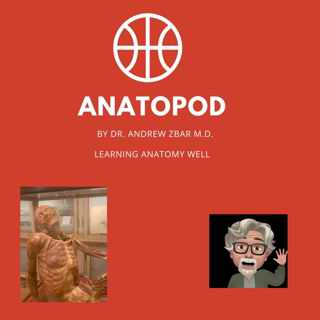
The Birth of Science and the Philosophy of Anatomy - The History of Anatomy
Jaksokuvaus
This podcast explains the debate in the dissecting halls during the Renaissance and beyond between Galenists and Cartesians. William Harvey (1578-1657) had developed his new experimentation as the methodology of science. Afterwards anatomy (like physics, astronomy and chemistry) needed to leave the natural philosophies and fall under the rubric of the developing sciences. Anatomy then became concerned with the expression and the understanding of Nature and left behind the metaphysicians more concerned with explaining human nature. And in so doing the grimy anatomists became scientists and arbiters of truth. For some, the anatomy rooms were intensely religious places where an anatomist could come to understand the mind of God. But for others they were a place to separate oneself from theology and theologians. They were, however, certainly dangerous places for the dissenting mind. The expression of one’s own views from these halls contributed to the death of Michael Servetus (1509-1553) for outlining his ideas on the pulmonary circulation but who made the mistake of including them in his 1553 Restitutio Christianismi which also attacked the infallibility of Christ. For this John Calvin (1509-1564) ensured that Servetus was burned at the stake, ordering the kindling saplings to be younger and greener so that the fire would last longer. The same fate awaited Giordano Bruno (1548-1600) who in expressing his agreement with a heliocentric universe where the earth orbited the sun, was also consigned to the flames. In this podcast I outline how without Galileo, Kepler and Newton even anatomy would have stumbled to advance. The next podcast moves on chronologically and is on the Anatomy Lesson paintings of northern Holland.